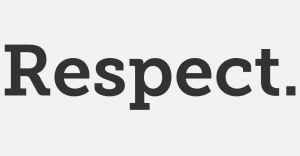In the June 17, 2014 Ask The Headhunter Newsletter, a reader says that not all jobs produce profit:
I have read this in your advice more than once:
If I can’t show you how I will boost the company’s profitability with my work, then you should not hire me.
There are many positions in “the company” that do not have a direct impact on profitability, and I would argue it could be difficult to prove they even have an indirect impact.
It seems to me much depends on the size of the company, the culture of the organization, the management structure, as well as the specific position and the ability and authority of that position to influence more significant factors (such as staffing levels or budgets) that could impact profitability.
If one is seeking one of these lower- to mid-level management positions (such as project manager, for example) exactly how would a candidate show how they will “boost the company’s profitability?” The concept is understandable, and I can see where at some level this might be valid, but the majority of job seekers are not operating at that level, are they? Is your advice targeted only at the highest-level positions?
Nick’s Reply
 Most of my columns are written for all levels of work – though some people have preconceived notions about what “profitable work” means. They are brainwashed, and I say that with a smile. Every job – every one – affects profit. Trouble is, few people (including employers) talk about it or even worry about it. That’s why we see layoffs and down-sizings.
Most of my columns are written for all levels of work – though some people have preconceived notions about what “profitable work” means. They are brainwashed, and I say that with a smile. Every job – every one – affects profit. Trouble is, few people (including employers) talk about it or even worry about it. That’s why we see layoffs and down-sizings.
I think it’s incumbent on every manager to have some sense of how each job in the department contributes to profit – either by boosting revenue or controlling costs. Both require work. There is no job that doesn’t affect one of those financial terms in a business, and – put very simply – PROFIT=REVENUE-COST.
Every job fits into one of the two terms on the right side. We can pretend it doesn’t, or we can avoid calculating it and thinking about it, but in the end, people lose their jobs and companies go out of business because one or more jobs aren’t contributing positively to the profit equation.
As an employee (many years ago) I sought out the CFO of my company to talk about how my job affected profit. The CFO was stunned that anyone would come in to discuss this – puzzled but pleased. I instantly made a new friend. (This experience was what prompted me to write How Can I Change Careers? and Fearless Job Hunting, Book 6, The Interview: Be The Profitable Hire.)
The profit from one job is a hard thing to calculate, as you point out, especially in larger companies. But go tell that to the board of directors and they’ll laugh at you. They’ll point to the P&L statement and ask you where your job is located – because it’s in there. Trouble is, management has learned not to talk about it. It’s long past time we fixed that and owned up.
I recommend this approach to job seekers because I know the effort to estimate a person’s role in profitability makes them stand out in job interviews. It makes them powerful candidates who show they care about the bottom line.
So please think twice about what you said:
There are many positions in “the company” that do not have a direct impact on profitability.
My response to that is, eliminate those positions, because they’re dangerous. And fire the managers who don’t know how jobs under their command impact profit directly. The people in those jobs may be great, but if management doesn’t know how they impact profitability, the jobs should be cut until management figures it out. It’s called a business plan – and no venture capitalist would put a dime into a new venture if the biz plan didn’t justify every single employee.
Why should a mature company be held to a lower standard? It shouldn’t — yet I know bigger companies are, with the excuse that they are “more complex.” So what? It’s okay for bigger enterprises to have sloppier profit metrics? Just look at the news — it’s why we see massive down-sizings. Management lost sight of profit for too long! (See Bloomberg: Profit-based job hunting and hiring.)
As for the “how,” if you do your homework as best you can prior to an interview, then open the profit topic for discussion in the interview, you’re head and shoulders above your competition. Estimate as best you can. Discuss the components that contribute to the calculation – even if you don’t have the numbers. Encourage the manager to get into it. The two of you may never come up with a fixed answer, but I guarantee you’ll have a discussion the manager will never forget, and you’ll learn more about the job than any other applicant.
If this were easy, everybody would be doing it. They’re not. And that’s the point – everyone isn’t because they’re not paying enough attention to why an employer pays anyone to work: profit. If you want to stand out from your competition, be ready to present the business plan for your job – as best you can. Be ready to assess the business plan with your boss. (See How do I prove I deserve a higher job offer?)
I know it’s not what you’re accustomed to – and it’s not what employers are accustomed to. I’ve had executives in Executive MBA classes at top biz schools ask me what you asked. When I explain it, light bulbs go off and they get it. They start laughing at themselves, and they get it. That “aha” moment is priceless. And that’s what I want the employer to experience when you complete your interview.
Rich Mok, a seasoned executive in Cornell’s Executive MBA program at the time, put it better than I can. He had just interviewed for a job after attending my workshop:
“The hiring manager more or less offered me the position on the spot and indicated a salary range that is roughly 40-50% more than I make now. Your two biggest lessons (at least for me) at work in the flesh: (1) Never divulge my current salary, and (2) Talk about what I will do, not what I’ve done. They oughta make you a Cornell professor! I can already see that the one hour you spent with us will have as much impact on my MBA ROI as any class that I have taken in the program, if not more so.”
Rich presented his plan for profit and surprised the employer. (See Don’t Get Hired, Get Acquired: Audio from Cornell workshop.)
I love questions from readers about topics like this. You’ve nailed a key underlying issue in Ask The Headhunter. Thanks! I hope my lengthy comments are helpful.
What’s the point of the job you want? Be ready to talk about it, because your resume is history. What you’ll get paid for is what you can do next. How do you talk about profit to an employer, and to your boss?
: :


 In any case, you can make some moves to protect yourself and to optimize your chances of getting a job offer.
In any case, you can make some moves to protect yourself and to optimize your chances of getting a job offer.



 he truth is, you have no idea what a company’s threshold is for taking action. Some companies will string you along — often unwittingly — for months, then take no action at all. As a headhunter who has dealt with more interviews than any job hunter ever will, I can tell you that most job opportunities go south.
he truth is, you have no idea what a company’s threshold is for taking action. Some companies will string you along — often unwittingly — for months, then take no action at all. As a headhunter who has dealt with more interviews than any job hunter ever will, I can tell you that most job opportunities go south. The Q&A section of the presentation was great — but of course, there were so many questions that we couldn’t get to them all.
The Q&A section of the presentation was great — but of course, there were so many questions that we couldn’t get to them all.
